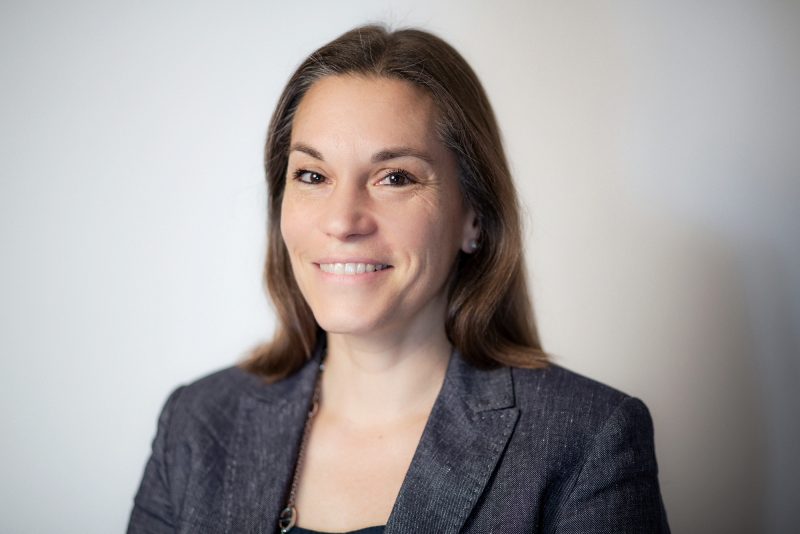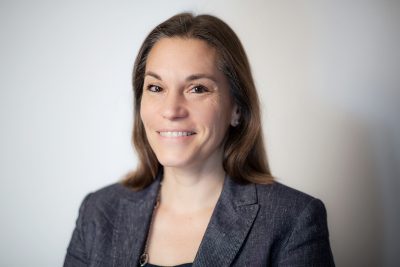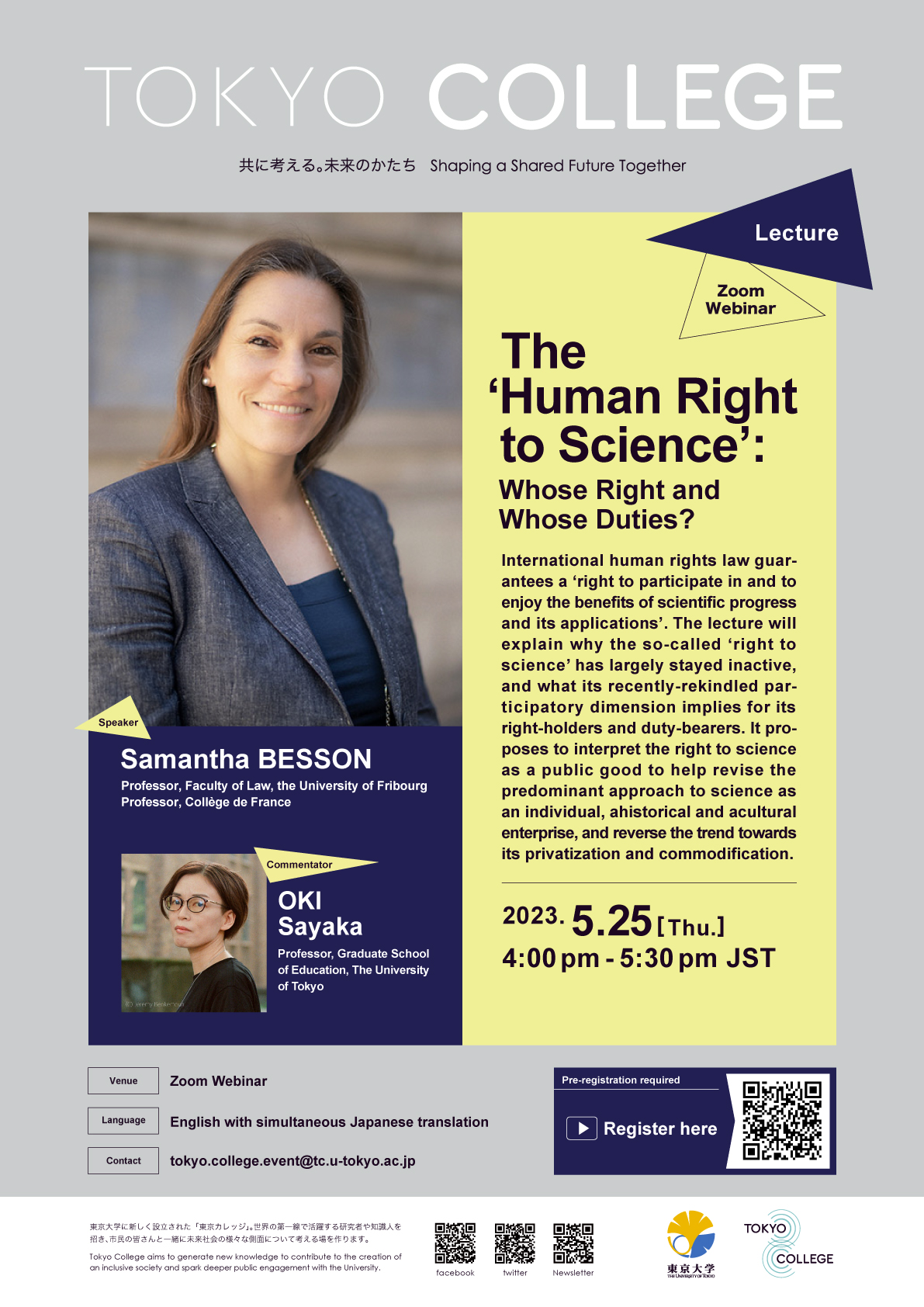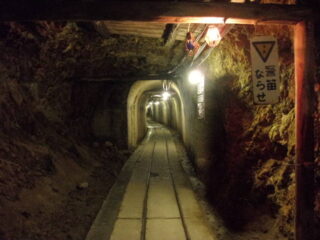The ‘Human Right to Science’: Whose Right and Whose Duties? (Lecture by Prof. Samantha BESSON)

| Date(s) | Thursday, 25 May 2023, 4:00 pm - 5:30 pm JST |
|---|---|
| Venue |
Zoom Webinar (Register here) |
| Registration | Pre-registration required |
| Language | English (English-Japanese simultaneous translation available) |
| Abstract |
International human rights law guarantees a ‘right to participate in and to enjoy the benefits of scientific progress and its applications’. The lecture will explain why the so-called ‘right to science’ has largely stayed inactive, and what its recently-rekindled participatory dimension implies for its right-holders and duty-bearers. It proposes to interpret the right to science as a public good to help revise the predominant approach to science as an individual, ahistorical and acultural enterprise, and reverse the trend towards its privatization and commodification. |
| Program |
Lecture Comment Q&A Moderator |
| Organized by | Tokyo College, The University of Tokyo |
| Contact | tokyo.college.event@tc.u-tokyo.ac.jp |














